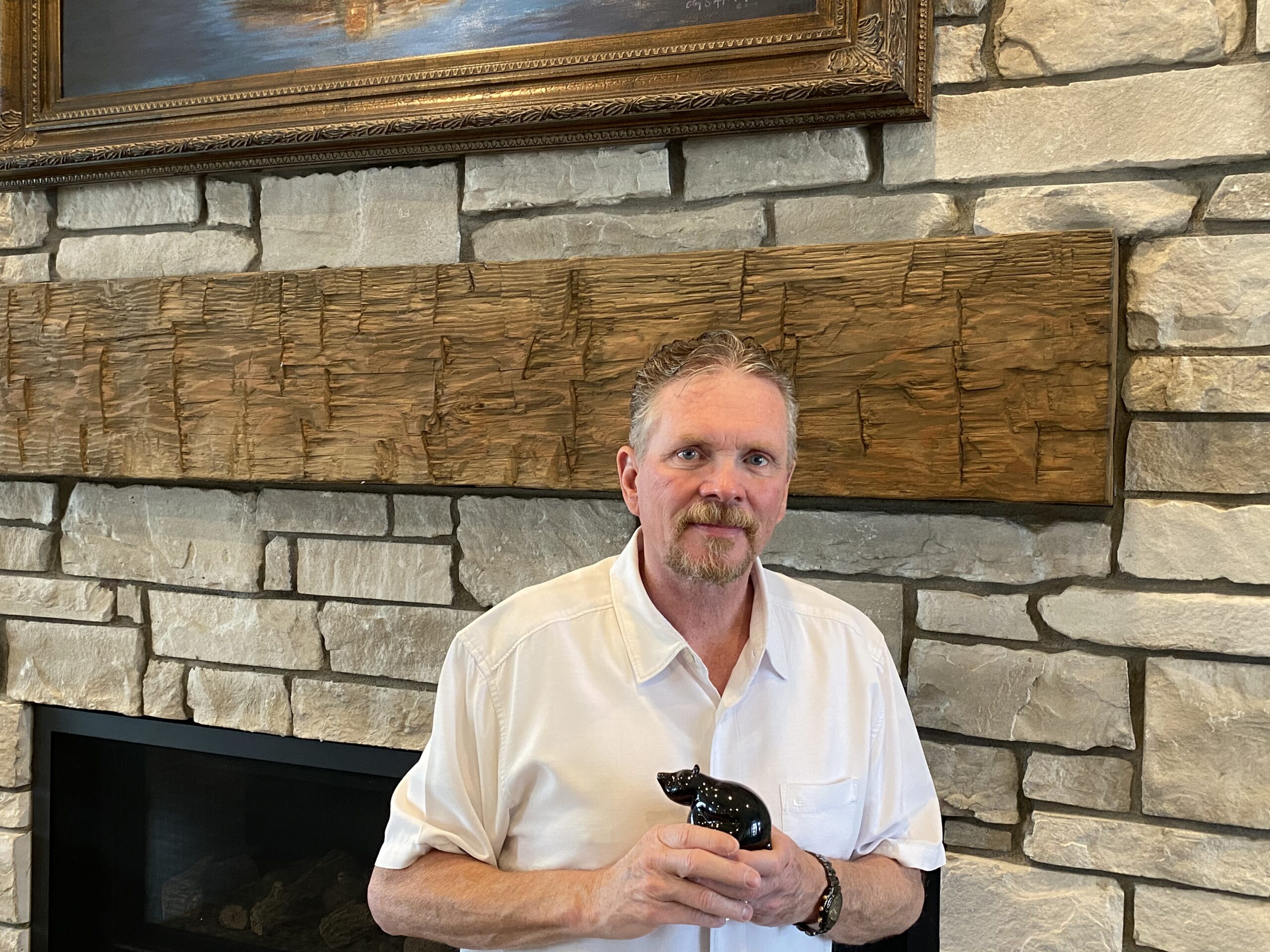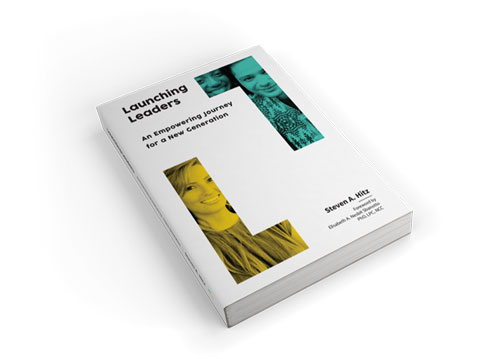Final Chapter, Mostly for the Living

In my previous blog posts “Give Life a Chance,” part one and part two, I wrote about lessons learned and lived through our experience of losing our son to suicide. I shared research, summaries, and ideas that our son wrote through his journal entries. This final part is a closing chapter to these thoughts on our experience, though our research and learnings continue.
I’ve scoured my son’s journals—mesmerized by his deep thinking and thoughtful outlook on life’s adventures. From his recorded experiences, including his travels abroad, he really “found” himself. I stand in awe of the man he is. It’s been nine months now since our boy’s passing.
Part of his ashes were melted/molded into the symbol of his nickname “Bear” that sits atop our mantle. Sometimes I bring him down and kiss him—imagining the bear hug he gave like none other. As I often read beneath the mantle, I imagine him with me as I ponder life, picture where he now is in my mind, and sometimes have a nice chat with him. I believe I hear him in the “conversation” and see him smiling upon me. He knows I miss him so, and I sense he does the same.
Someone asked me recently, “Does it ever get better?” The simple answer is “Not really.” Yes, the miracle of healing has occurred in different ways for each family member, but the pain of his loss is constant. I live with it because I want to. It’s my way of always feeling near him. The wave of sadness comes in sets, just like the ocean waves. Some days I’m wading in the shallow water, sun on my face and reliving the joyous memories; other times I’m gob smacked by waves of emotion and loss. That’s OK, the ocean keeps moving—sometimes small waves, sometimes large ones, but always cleansing in its own way.
Here are a few of ideas that have come to me on suicide ideation. Perhaps you can build upon these in developing your own thoughts.
- Don’t ask HOW. You don’t need to know how a person died by suicide. Asking them to relive the cause, can activate very real PTSD and cause pain unimaginable. You don’t need to know the cause in order to love, mourn, and embrace. It’s just insensitive to ask, even though the question obviously didn’t seek to harm—so don’t.
- Don’t cast judgment. I grew up in an era where suicide was cast as evil. It’s NOT. It’s simply the last resort of a lonely and anguished soul—almost always due to issues associated with mental illness. As survivors of loved ones who leave the earth in this manner, our lot is simply to love. Nothing else. Just love.
- Avoid advice-giving. Those who participate in grief counseling and other such helpful venues learn to stick with statements that avoid advice-giving. Share the air and listen intently to those grieving. You have no obligation to “solve” a situation—just be. Also, keep conversations shared with you by those who are grieving confidential. They are sharing with you because they trust you. Don’t ruin that trust. It can be harmful on many levels.
- There are no “grief wars.” No one’s loss is better or worse than another’s. Hold space for everyone’s stories and experiences without a need to compare.
- Joy and sadness are not mutually exclusive. Be willing to welcome laughter as much as tears. You can be sad and still joyous, and joyous and still sad.
- Know that their spirit and essence live on. I have the good fortune of mingling with many other faiths and faith leaders through our charity work. I am always buoyed by rubbing shoulders with believers of any kind. My faith beliefs differ from many of my friends and associates, but we ALL share the idea that our spirits live on. So it is.
- Live with intention. In a major study of young people by Springtide National Research, their survey revealed 71 percent of young people say it is important to make intentional time and space to activate the imagination. It’s so important to not live a life of simply checking boxes. Rather, take the time to ponder and imagine. Where this leads is only good.
- Be authentically you. Someone once told me, “just be you,” everyone one else is taken. Those who suffer with a feeling of not belonging are often pushed further into this abyss by those trying to help them, but are doing so from their need to check their own box. Just be you.
- LOVE LIVES ON! Though you can’t bring them back, know that for everyone connected, including the one who died by suicide, LOVE LIVES ON!
The number one epidemic in the world is loneliness. Especially in the rising generations, many are lonely, socially isolated, and stressed. The Ford Motor Company 2020 Trends report identified loneliness as one of the most pressing issues confronting society now and for the foreseeable future. Their study found a lack of trust in relationships which removes the bedrock of trust, which also increases anxiety as well.
One significant antidote to loneliness is having a sense of belonging. This “belongingness” is not a matter of where, but rather, who. Family, friends and caring adults are the fountain of belongingness. When our son was in his last trying months, he pushed his family and friends away, trying to shield his pain. Don’t allow that to happen. Push back and in. Understand that your authentic and loving relationship requires work, and that work establishes belongingness for everyone—especially those who suffer.
Consider these three levels of the belongingness process:
I am noticed. There is not a living person on the planet who doesn’t have a need to be noticed in some way, sometimes. How can we take the time to engage our loved ones, recognize them authentically, and celebrate their lives continuously?
I am named. If you are like I am, when I meet someone new, I frequently forget their name, especially if my interaction is a one-time event. I’ve taken to really trying to know someone by their name, even if I have to ask a couple of times to remind me what their name is. Then I often write it in my notebook, so I have less of a chance of forgetting. I can’t tell you how many times those supposedly one-time introductions have blossomed over time simply because I took the time to know their name.
I am known. When someone is noticed and then their name is known, they feel like their personhood matters—at least to that person who is present and remembered. We don’t need to be known to have any type of status. If it’s a pride thing to be noticed, it’s simply not authentic. Authentic people don’t appreciate fake status. If you count on being known by the title on your business card, you won’t really be known at all. But if we are known because of our authenticity, then we are on the road to some recovery from loneliness.
I’m not proposing any of these ideas for what has been, rather they are presented with the hope of what might be. I’ll continue to walk on my beach of grief, basking in what once was with my hope of what might be—not only for my relationship with my son who has passed, but also for the relationships of belongingness I am reinventing for my family, friends and associates. Those I love.





